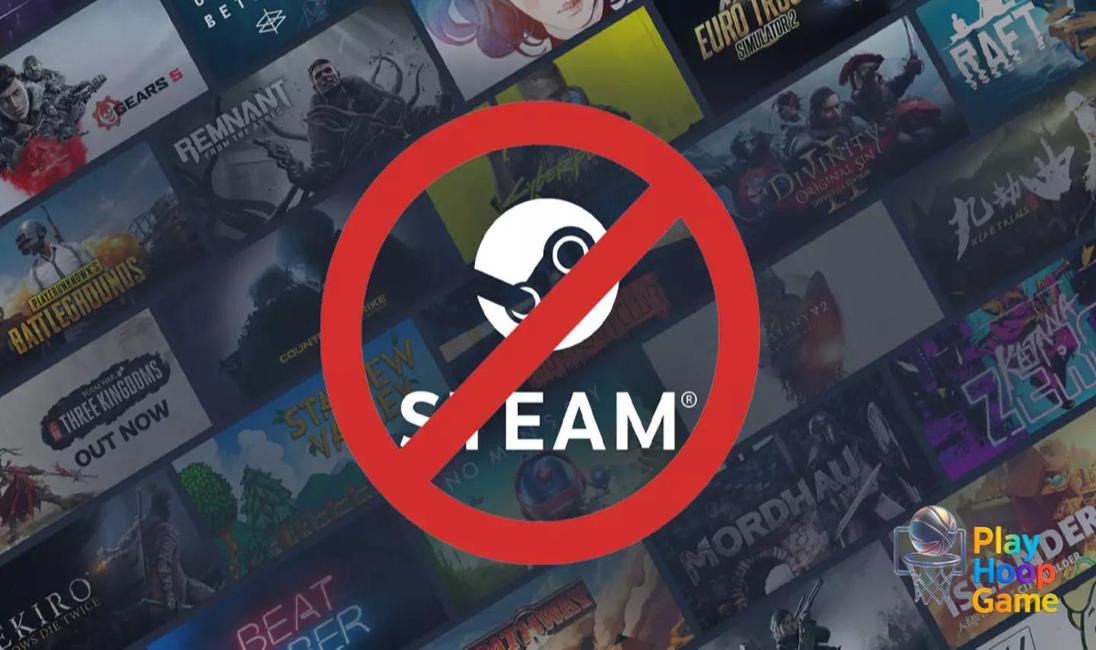So, here's something you might've missed – or maybe you didn't, and you're just as gobsmacked as I was. Apparently, Steam – you know, the behemoth of PC gaming – has quietly, almost ninja-like, removed hundreds of games from its platform. Hundreds! I mean, we're not talking a small spring cleaning here; this is a full-blown digital decluttering. You might be wondering, "Why?" Well, that's the million-dollar question, isn't it? And honestly, the answers are as varied as the games themselves. Did you know that Valve's Steam enjoys a commanding 75% share of the PC gaming download market? Check it out!
The Great Steam Purge: What's Going On?
Let's dive into the swirling vortex of speculation and, you know, maybe some actual facts. One of the primary reasons cited is, unsurprisingly, compliance. Games need to adhere to Steam's guidelines, and if they don't – poof! They disappear. But it's not always that cut and dry. Sometimes it's about copyright issues. Imagine you're a small indie developer, and you accidentally use a copyrighted asset. BAM! Your game's gone. Steam isn't messing around. But there's something even more interesting here... think about the sheer volume. We're not talking about a handful of titles; we're talking hundreds. That suggests a broader sweep, a more systemic cleanup effort.
I initially thought it was purely about quality control – maybe Steam was finally cracking down on asset flips and low-effort games. And to some degree, that's probably true. Steam Direct made it incredibly easy for anyone to upload a game, leading to a flood of, well, let's just say "less-than-stellar" titles. But after looking deeper, it seems like there's more to it than just that. It may include games with fake reviews, misleading marketing, or outright scams. I've got to admit, the scale of this fascinates me.
Consider this: many of these games were probably generating minimal revenue anyway. Removing them streamlines the storefront, improves search results, and generally makes the platform more appealing to users. It’s a bit ruthless, perhaps, but also… smart? There's an economic logic at play here that I find compelling. Here's some information to check out related to Subway Surfers.
Delisting vs. Banning: What's the Difference?
Okay, let me try to explain this more clearly, because the terminology can get a bit confusing. When we say a game is "banned," it implies a more severe action – typically reserved for games that violate serious rules or laws. Think hate speech, illegal content, or something truly egregious. "Delisting," on the other hand, is a broader term that simply means the game is no longer available for purchase on the platform. It could be due to any number of reasons: developer choice, expired licensing agreements, or, yes, Steam's own content moderation policies. So, in many cases, the games weren't necessarily "banned" in the strictest sense of the word; they were simply removed from the store.
This isn't just about Steam, either. Other platforms do this, too, including PlayStation. Read about PlayStation related news here.
But – and this is a big but – the sheer scale of this particular delisting event is what makes it so noteworthy. It suggests a concerted effort on Steam's part to clean house, to raise the overall quality bar, and to protect users from potentially harmful or misleading content. And honestly? I'm not entirely against it. The Steam store had become a bit of a digital Wild West, and some degree of regulation is probably a good thing.
The Impact on Developers (and Players)
Now, you might be wondering about the impact on the developers whose games were removed. And that's a fair question. For some, it might be a minor inconvenience – they can simply re-upload the game after addressing the issues. For others, it could be devastating. Especially if they relied on Steam as their primary source of revenue. It’s a harsh reality of the digital marketplace: your game's fate is largely in the hands of the platform owner.
And what about the players? Well, if you already owned the game, you probably still have access to it. Delisting doesn't typically remove games from your library. But it does mean that new players won't be able to discover and purchase these titles. Which, depending on your perspective, could be a good thing or a bad thing. It reduces the noise, but it also potentially limits access to niche or experimental games that might have found an audience.
It's a complex situation with no easy answers. But one thing is clear: Steam's recent actions signal a shift in how the platform is approaching content moderation and quality control. And that's something that the entire gaming community should be paying attention to.
Here's the thing – this isn't just about games. It's about the broader trend of platform governance and the responsibilities that come with wielding that power. As digital marketplaces become increasingly dominant, they have a duty to protect their users, but also to respect the rights of creators. Finding that balance is the challenge of the 21st century.
FAQ: Steam Game Removals
Why does Steam remove games in the first place?
Steam removes games for various reasons, ranging from copyright infringement and violation of Steam's guidelines to developer requests and expired licensing agreements. They also might delist games that are considered low-quality, misleading, or even outright scams. It's all part of their effort to maintain a certain standard of quality and protect users.
How do I know if a game I own has been removed from Steam?
If a game is delisted from Steam, it usually won't disappear from your library if you already own it. You can still download and play it. However, it will no longer be available for purchase on the Steam store. You might notice it's missing when browsing the store, or if a friend tries to find it to buy.
What happens if a Steam game gets banned for violating rules?
If a game violates Steam's rules (think illegal content, hate speech, etc.), it could get outright banned. This is a more severe action than simply delisting it. In this case, the game will be removed from the store, and in some cases, Steam might even revoke access to players who already own it, although that's less common. Steam takes these violations seriously.
Is there a way to appeal if a game is removed from Steam?
Yes, developers can appeal Steam's decision if their game is removed. They usually need to contact Steam support and provide evidence that they have addressed the issues that led to the removal. It's not always a guaranteed win, but developers do have recourse to challenge the decision.
Does Steam provide a list of all removed games?
Steam doesn't provide a public, comprehensive list of all removed games, making it difficult to track every single title that's been delisted. However, you can often find information about specific removals on gaming news sites or forums, where players and developers discuss these events. It requires a bit of digging, but the information is usually out there somewhere.

























